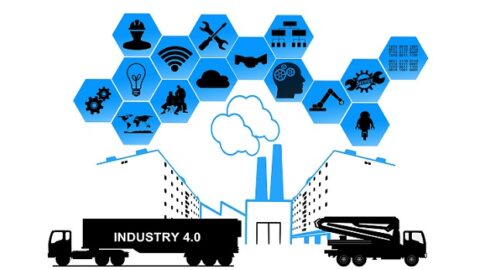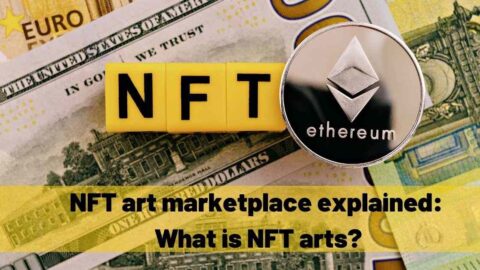How Technology Can Streamline Food Manufacturing Processes
In an era of rapidly advancing technology, the food manufacturing industry stands poised to harness the power of innovation to revolutionize its processes. From farm to fork, technology has the potential to streamline every stage of food production, ensuring efficiency, sustainability, and improved quality.
Table of Contents
By leveraging cutting-edge solutions such as automation, data analytics, artificial intelligence, and robotics, food manufacturers can optimize their operations, reduce waste, enhance food safety, and meet the ever-growing demands of consumers. This article explores the myriad ways in which technology can serve as the catalyst for a new era of streamlined food industry.
Benefits of Using Technology in Food Manufacturing
Embracing technology in food production and processing gives you the following benefits:
Increased Efficiency
One of the primary advantages of incorporating technology into food manufacturing processes is the significant increase in efficiency. Manual tasks that were once time-consuming and prone to errors can now be automated, reducing human error and freeing up valuable time for employees to focus on more critical tasks
For instance, the implementation of enterprise resource planning (ERP) software can streamline inventory management, production planning, and scheduling, ensuring optimal resource allocation and minimizing waste. By automating these processes, food manufacturers can achieve higher production rates, shorten lead times, and ultimately enhance overall operational efficiency.
Reduced Costs
Cost reduction is a critical aspect of any business, and technology offers several avenues to achieve this. By leveraging advanced software solutions, companies can optimize their supply chain management, inventory control, and procurement processes. This enables them to minimize excess inventory, eliminate stock outs, and negotiate better pricing with suppliers.
Cost-saving measures not only improve profitability but also contribute to sustainability by minimizing waste and resource consumption.
Improved Quality
Maintaining consistent product quality is vital for food manufacturers to build consumer trust and loyalty. Technology plays a crucial role in ensuring quality control throughout the production process. Tracking software allows manufacturers to monitor and trace the entire journey of raw materials, ingredients, and finished products.
With real-time visibility into the supply chain, potential issues such as contamination or spoilage can be quickly identified and addressed, reducing the risk of recalls and reputational damage. Moreover, quality management software enables companies to establish robust quality control protocols, track key performance indicators, and conduct thorough inspections.
Enhanced Compliance
Compliance with food safety regulations is a top priority for food manufacturers, and technology can simplify and strengthen the compliance process. Software for HACCP compliance is designed to ensure that food safety hazards are identified, monitored, and controlled at critical points in the manufacturing process.
By automating data collection, analysis, and reporting, this software helps manufacturers maintain comprehensive records, perform risk assessments, and demonstrate compliance during audits. Integrating these technologies into their operations, food manufacturers can uphold the highest standards of safety and regulatory compliance.
Types of Technology Used in Food Manufacturing
Wondering whether there is software effective for the food industries? Here are useful software that can help your business grown into folds:
Enterprise Resource Planning (ERP) Software
ERP software integrates various business functions, such as inventory management, procurement, production planning, and customer relationship management, into a single system. It provides control over operations enabling efficient resource allocation and streamlined communication across departments. By consolidating data and automating processes, ERP software helps food manufacturers make informed decisions, reduce costs, and enhance overall productivity.
Food Traceability Software
By using food tracking apps, it enables manufacturers to track and trace products from raw materials to finished goods. It captures critical information, such as the origin of ingredients, processing details, and transportation records, ensuring transparency and accountability. In the event of a product recall, this software facilitates rapid identification and removal of affected items, mitigating risks and protecting consumer safety.
Quality Management Software for Food Manufacturing Industry
Quality management software is designed to streamline and automate quality control processes. It enables manufacturers to establish and enforce standardized quality protocols, conduct inspections, track non-conformances, and manage corrective actions. This software ensures that products meet regulatory requirements and customer expectations and fostering brand integrity.
Predictive Analytics Software
Predictive analytics software utilizes historical and real-time data to forecast future demand, production needs, and market trends. By leveraging advanced algorithms and machine learning, manufacturers can optimize production schedules, minimize waste, and address potential supply chain disruptions. This data-driven approach empowers companies to make informed decisions and adapt to changing market conditions.
Temperature Monitoring Software
Temperature levels are crucial in the food manufacturing industry. The above software is particularly important for perishable food items that require specific temperature control throughout the supply chain.
The monitoring software uses sensors and connected devices to monitor temperature conditions during storage, transportation, and distribution. It alerts manufacturers if there are any temperature deviations or breaches, helping them take immediate corrective actions to maintain product quality and safety.
Product Recall Software for Food Manufacturing
In the unfortunate event of a product recall in food manufacturing industry, the above software becomes essential for efficiently and effectively managing the recall process. It enables manufacturers to quickly identify affected products, communicate recall notices to distributors and retailers, and track the retrieval of recalled items from the market. In addition, it streamlines the entire recall process, reducing potential harm to consumers and minimizing brand reputation damage.
How to Choose the Right Technology for Your Food Manufacturing Business
When selecting technology for your food manufacturing business, consider the following steps:
Consider Your Specific Needs
Identify the pain points and challenges within your manufacturing processes. Assess which areas can benefit most from technology integration.
For instance, if inventory management is a significant concern, prioritize software that offers robust inventory control features. Align your technology choices with your strategic goals to ensure the solutions meet your unique requirements.
Do Your Research
Thoroughly research available software options, considering factors such as functionality, scalability, user-friendliness, and compatibility with existing systems. Read customer reviews and case studies to gain insights into the practicality and effectiveness of each solution. Consult with industry experts or seek recommendations from trusted peers to gather additional perspectives.
Get Quotes from Multiple Vendors
Request quotes from multiple vendors to compare pricing structures, implementation timelines, and ongoing support services. Consider not only the upfront costs but also the long-term return on investment. Evaluate the vendor’s reputation, track record, and customer support capabilities to ensure a reliable partnership.
Conclusion on Food Manufacturing Industry
Technology has become an indispensable tool for food manufacturers seeking to enhance operational efficiency, reduce costs, improve product quality, and ensure compliance. By leveraging software solutions such as ERP systems, software for HACCP compliance, and predictive analytics tools, manufacturers can streamline their operations and achieve a competitive edge in the industry.
However, it is crucial to choose the right technology that aligns with your specific needs and business goals.

David is a dynamic, analytical, solutions-focused bilingual Financial Professional, highly regarded for devising and implementing actionable plans resulting in measurable improvements to customer acquisition and retention, revenue generation, forecasting, and new business development.










